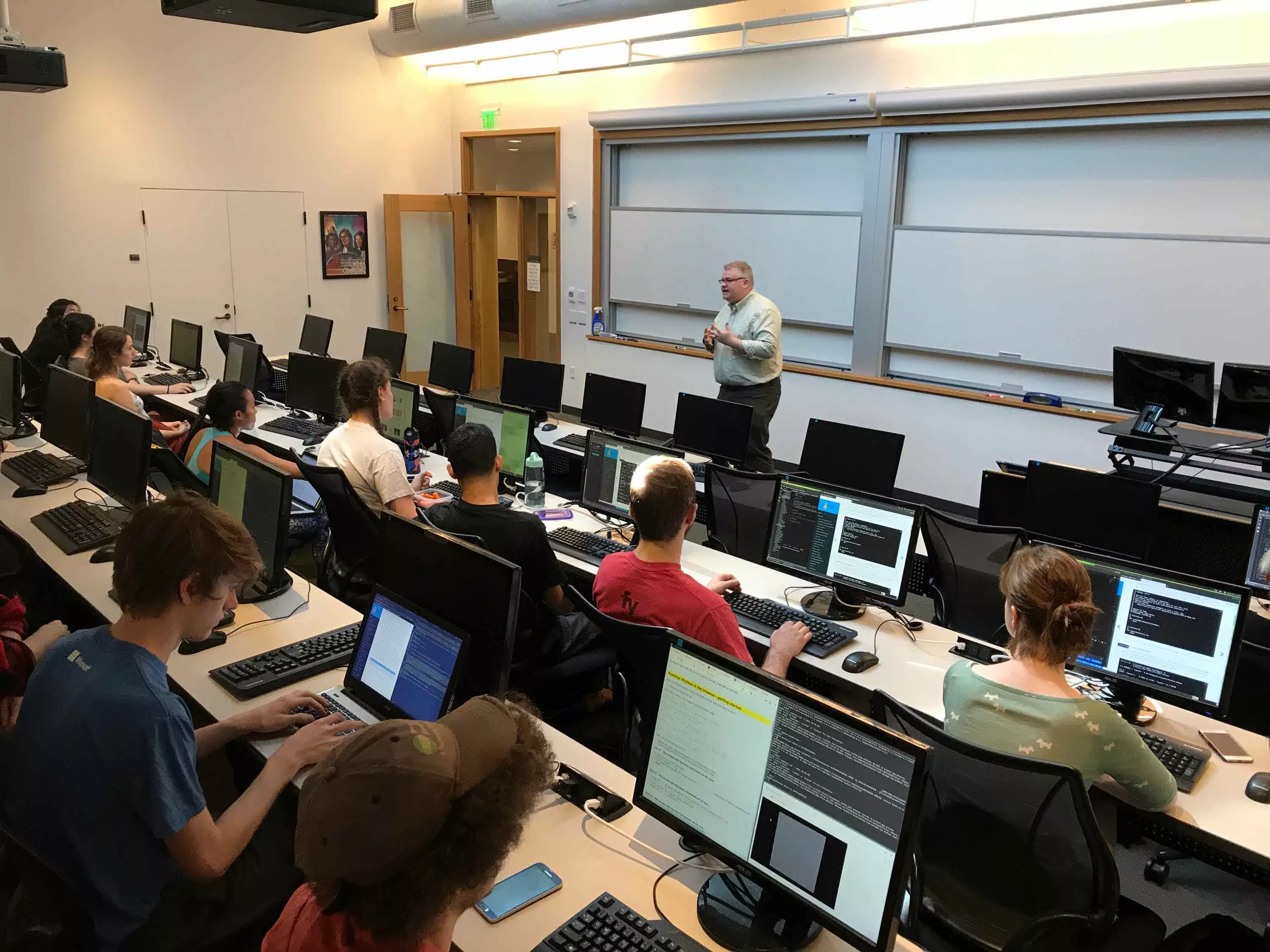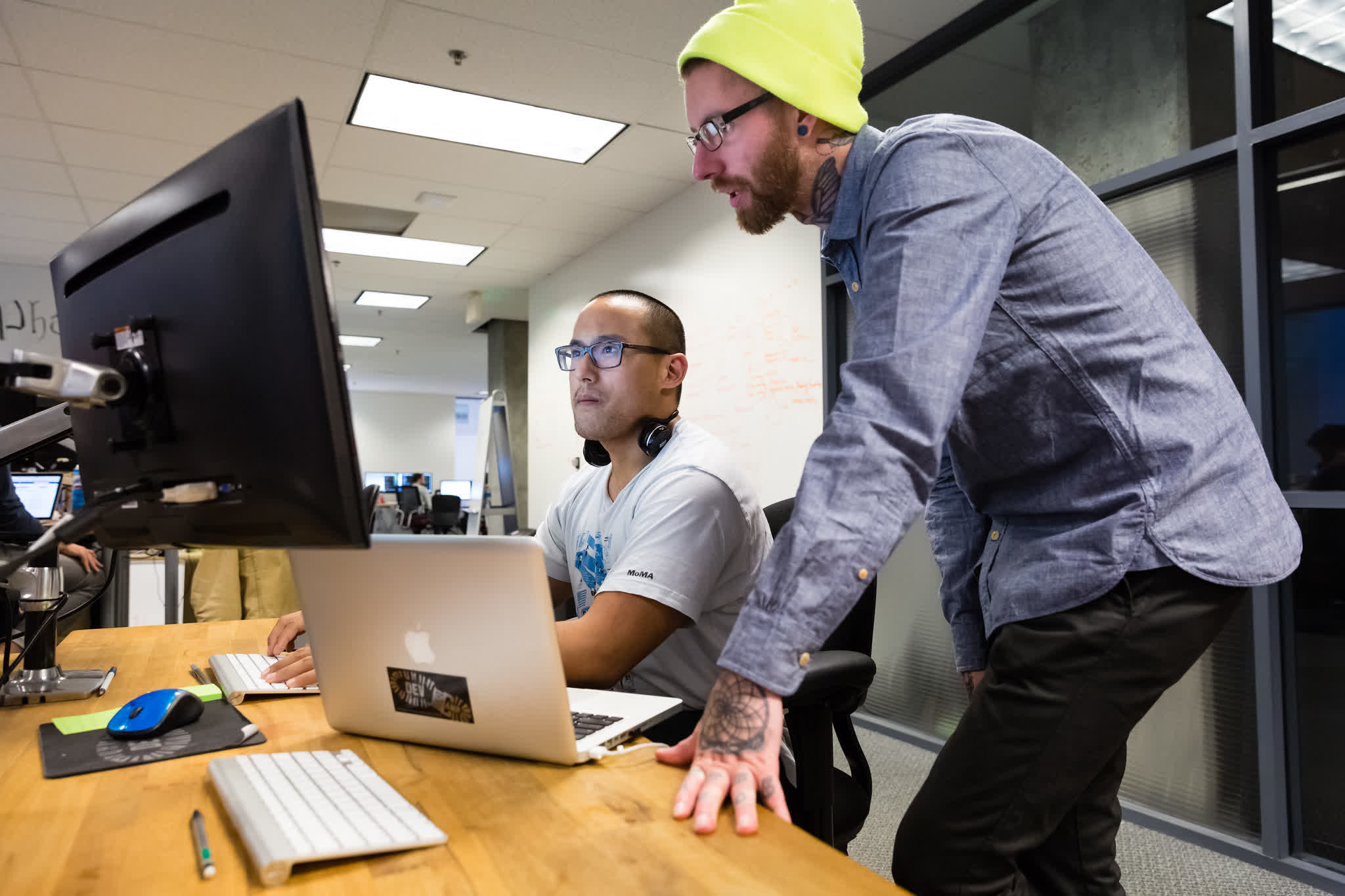A hot potato: Tech leaders such as Tim Cook spent years telling people that if they wanted a lucrative career in the industry, they needed to learn to code. But the advent of generative AI now means that coding isn't the guarantee of a good job that it once was. The number of active job postings for software developers has dropped 56%, and the number of placements on coding boot camp courses is dwindling.
In 2024 alone, 519 companies in the tech industry have laid off just over 149,000 people. A substantial percentage of those layoffs come from firms "streamlining" their businesses by using generative AI to do a human's job or assist with certain tasks.
The New York Times reports that ChatGPT and similar tools are also impacting coding boot camps. In 2020, a survey of 3,000 graduates found 79% said the courses had helped them get a job in tech, along with an average salary increase of 56%. But the outlook for graduates has changed drastically over the last few years.

One recent coding boot camp graduate told The NYT they had yet to land a single interview since completing their course.
The publication writes that a founder of one of the camps decided to pause his courses indefinitely this year because his job placement rates had fallen from 90% to below 60%.
The grimmest statistic comes from data compiled by CompTIA: active job postings for software developers have dropped 56%, while postings for inexperienced developers are down 67%.
"I would say this is the worst environment for entry-level jobs in tech, period, that I've seen in 25 years," said Venky Ganesan, a partner at the venture capital firm Menlo Ventures.
Each new iteration of generative AI tools tends to be better at writing code than the last. In September, OpenAI unveiled a new series of AI language models named the "o1," specifically engineered to enhance reasoning capabilities, particularly for complex issues in science, coding, and mathematics.
"Coding" was never the source of value, and people shouldn't get overly attached to it. Problem solving is the core skill. The discipline and precision demanded by traditional programming will remain valuable transferable attributes, but they won't be a barrier to entry.
– John Carmack (@ID_AA_Carmack) February 26, 2024
Many… https://t.co/0JmpGWfaT0
Some experts say AI tools still lack the essential coding skills that even junior programmers possess, and that LLMs like GPT-4 continue to make stupid mistakes and are incapable of performing some tasks well, if at all.
Advocates, on the other hand, say AI is good for programming, helping speed up the process. About 60% of 65,000 developers surveyed in May by StackOverflow say they had used AI coding tools this year. The assistants may not have boosted their productivity or effectively helped prevent burnout, though, according to a recent study.
Probably the biggest seal of approval AI received came last month when Google CEO Sundar Pichai revealed that 25% of new code the company creates is written by the technology.

There's no hiding from the fact that generative AI has changed the industry, from the many job losses to the computer science coding classes that now deemphasize syntax. Some coding camps are turning into AI and machine learning boot camps, and the phrase "AI monkey" has made its way into common parlance.
Jensen Huang, CEO of the company whose hardware is driving the AI revolution, painted the clearest picture of this industry shift at the start of the year. He said that AI has made the need to learn programming redundant, and humans should instead focus on more important skills such as biology, education, manufacturing, or farming.
Masthead: Dev Bootcamp
Coding boot camps fight for relevance in the era of generative AI and a shrinking job market
